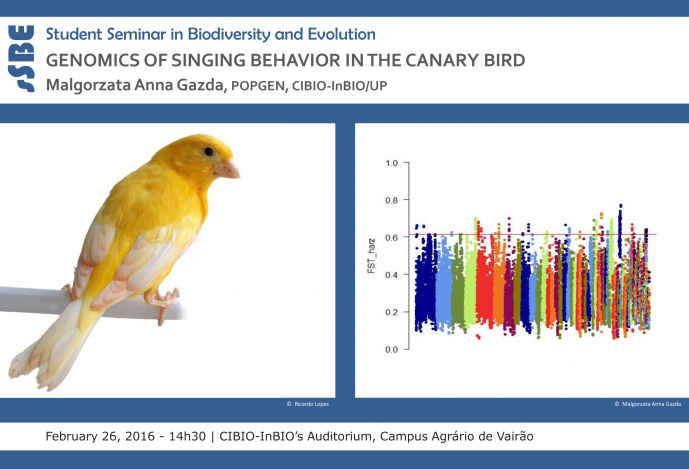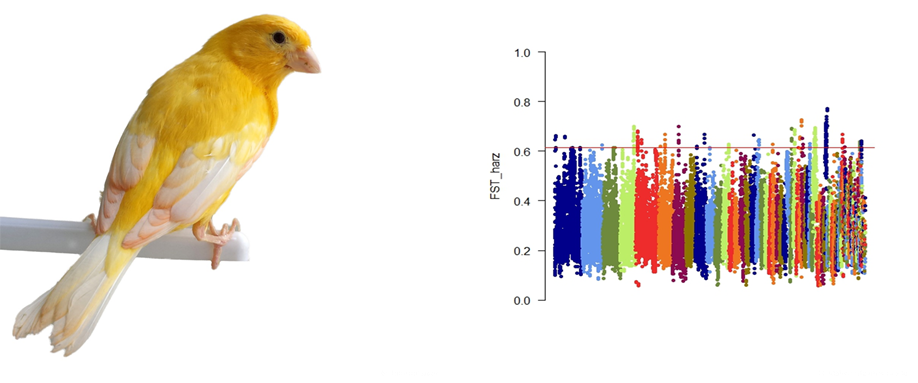GENOMICS OF SINGING BEHAVIOR IN THE CANARY BIRD

STUDENT SEMINAR IN BIODIVERSITY AND EVOLUTION

Bird singing is a trait of general interest to evolutionary biologists and has strong parallels with human speech. However, its molecular basis is still poorly understood and very few genes are known. Our project uses the domestic canary bird (Serinus canaria) as a model system by taking advantage of the recently released reference genome and several breeds that were artificially selected for their song type. The main aim of this project is to uncover the genetic bases underlying these heritable and divergent vocalizations. To do so, we sequenced 40 individual genomes for selective sweep mapping and we are carrying out in parallel controlled crosses for linkage mapping approaches. We expect that our integrative approach will forward our understanding of the genomic basis and architecture of singing behavior. Furthermore, it has the potential to elucidate molecular mechanisms and individual genes underlying complex behaviors.
Małgorzata Anna Gazda is currently a PhD student at CIBIO-InBIO/University of Porto, supervised by Miguel Carneiro and Ricardo J Lopes. She graduated from the Jagiellonian University in Kracow, Poland with a MSc thesis about heterozygosity-fitness correlations. Afterwards she gained experience working 2 years in the Museum and Institute of Zoology Polish Academy of Sciences, Warsaw, Poland and Technical University of Munchen, Germany as a research assistant in the project about coevolution of cuckoo and gerygone.
Image credits: Ricardo Lopes and Malgorzata Anna Gazda